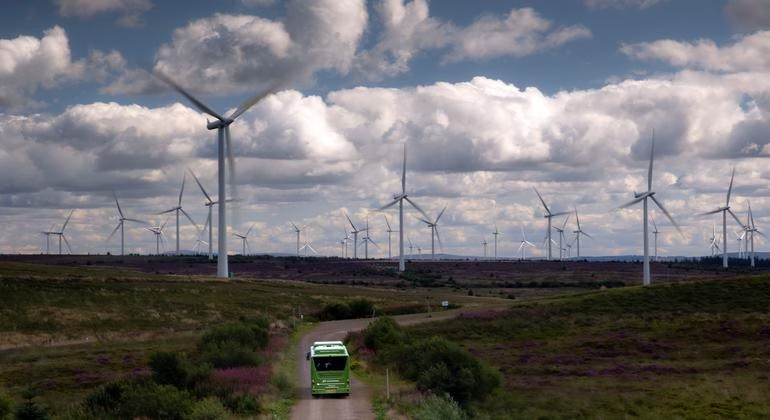The surge towards renewable energy is gaining momentum, with solar panels increasingly covering desert expanses, wind turbines dotting coastlines, and hydropower dams harnessing rivers to generate clean electricity. However, despite the progress, experts are raising flags about the dependence of renewable energy sources on weather conditions, indicating that climate change is jeopardizing energy production. In 2023, the effects of climate change disrupted renewable energy generation globally, affecting different energy sources in various parts of the world. However, this disruption also presents opportunities in some regions, such as South America, where clear skies boosted solar panel performance.
While renewable energy sources like hydropower, wind energy, and solar power showed signs of stress due to changing climate conditions, such as low rainfall and extreme weather events, there is also a positive impact in some regions. For instance, South America witnessed a rise in solar generation due to favorable weather conditions. The study by WMO and IRENA highlights the impact of climate conditions on renewable energy production and demand globally.
The vulnerability of renewable energy infrastructure to the changing climate is a significant concern. Dams, solar farms, and wind turbines are designed based on past climate patterns, making them susceptible to changes in weather conditions. The future of renewable energy is uncertain due to the unpredictability of climate patterns, emphasizing the need for climate intelligence and diversified energy portfolios.
Renewable energy experts emphasize the importance of climate intelligence, which involves using climate forecasts, data, and science to inform energy planning. AI and machine learning can now predict resource fluctuations with higher accuracy, enhancing the ability to optimize renewable energy production. Closing the data gap, especially in the Global South, is crucial for accurate forecasts and energy project viability.
Diversified energy portfolios, incorporating multiple renewable sources such as solar, wind, hydro, battery storage, and even low-carbon sources, are necessary to adapt to long-term shifts in climate. European energy planners are concerned about the “dunkelflaute,” a period of cloudy and windless weather in winter that undermines solar and wind power generation.
In conclusion, as the world races towards a renewable energy future, it is imperative to address the challenges posed by climate change. The disruption experienced in 2023 highlights the need for climate-smart planning, infrastructure, and integration of climate intelligence into energy systems. By leveraging advanced forecasting, artificial intelligence, and diversified energy portfolios, we can optimize renewable energy production and safeguard our future.
Source: https://news.un.org/feed/view/en/story/2025/03/1161526







